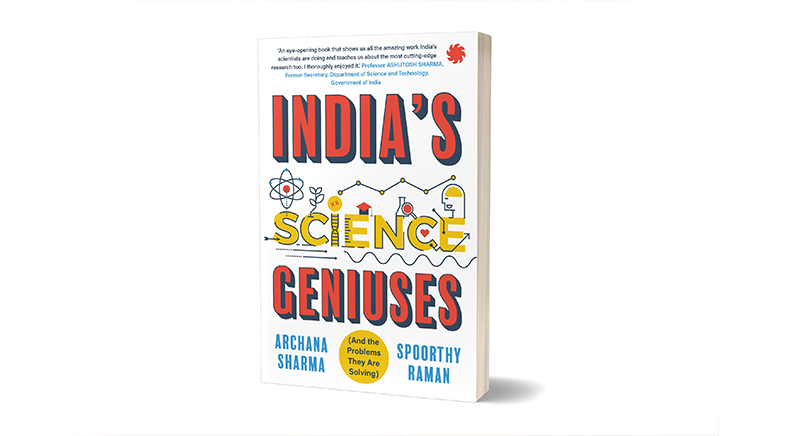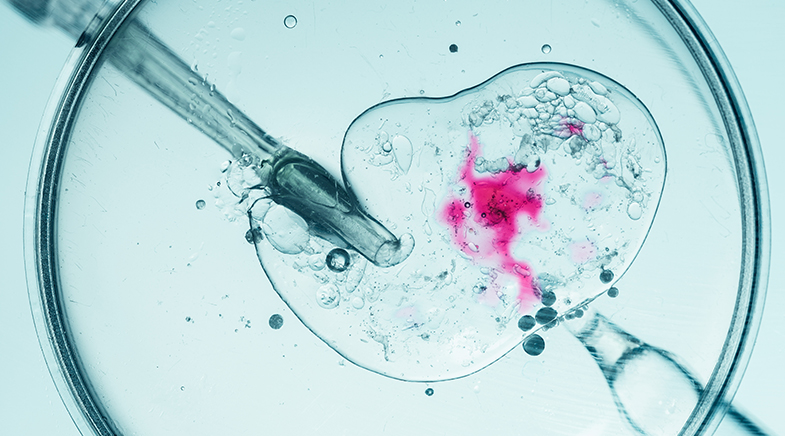Going the extra mile
-
- from Shaastra :: vol 03 issue 02 :: Mar 2024

Low-cost kits make healthcare accessible in rural areas.
For people in rural India without access to healthcare facilities, hope comes packaged in portable and affordable diagnostic kits. The kits have been developed by Suman Chakraborty, Professor at the Indian Institute of Technology Kharagpur. "If they can't come to the lab… a miniature lab can go to them for doing the same test at virtually no cost," says Chakraborty.
In 2022, Chakraborty invented device-free, paper kits for blood tests, including a zero-cost anaemia test kit, which needs just glycerol and filter paper. When a less viscous liquid (like blood) spreads on a more viscous liquid (like glycerol), it creates finger-like patterns. The haemoglobin content can be quantified from this pattern and classified via image analysis and data analytics algorithms to diagnose mild, moderate and severe anaemia in patients, instantly.
Since then, Chakraborty's team has developed smart paper-strip kits capable of testing various ailments from just a drop of body fluid without the need for any separate physical device.
A GENERIC TEST KIT
During the COVID-19 pandemic, Chakraborty wanted to understand alternative testing methodologies to the RT-PCR test. As a mechanical engineering professor, Chakraborty called up his virologist colleague Arindam Mondal, and the researchers identified an existing but unpopular method called LAMP (loop-mediated isothermal amplification). Since the LAMP method lacked a standard device, the PCR machine was used by many labs. Borrowing key insights from the RT-PCR machine but keeping the design as frugal as possible, Chakraborty developed a generic low-cost portable device for testing all kinds of infectious diseases based on the LAMP method.
The nucleic acid test machine operates at a constant temperature – instead of the heat-cool method used in PCR-based tests – and depends on optical detection of the test outcome (a visible colour change that can be analysed and interpreted on a smartphone). Chakraborty says he reckoned that even beyond the pandemic, test kits would be required for various infectious diseases that would recur.

Many companies have portable RT-PCR machines but they are complex, expensive and often don't work in harsh conditions. Chakraborty's nucleic acid-based testing device works outside laboratory controls and does not require expertise to run. Called COVIRAP, the device yields test results in just 30 minutes. COVIRAP is essentially a pre-programmed electronic heating chamber that regulates the temperature and time of heating with high precision once the sample is placed in a designated slot. Users need to take two images of the test sample in the collection tube – before and after the test. Following this, a mobile application, relying on real-time data, promptly discloses the result using a scan of both the images and by quantitatively analysing the change. A positive result is indicated by a noticeable colour change in the sample. Priced at $50 per test, this device detects viruses, bacteria and parasites by customising the test protocol via pre-programming of the device and standardising the reagent recipe without any changes to the physical device.
DETECTING MALIGNANCY
Another area Chakraborty is interested in is the interaction of heat with living tissues. With Research Associate Arka Bhowmik, he has devised a new method of estimating the flow of blood to tissues (blood perfusion) using a thermal camera. Rapid advancement of cancer accompanies the inception of new blood vessels. Blood perfusion can thus be linked to cancer progression. Their method can detect a patient vulnerable to oral cancer at an early stage, before the transition from pre-cancer to cancer. The researchers have developed a handheld detector that captures thermal images of the mouth in thirty seconds. Diagnostic insights are obtained using a machine learning-based analysis disseminated via a web browser or mobile application.
The device can also be trained to detect abnormalities in superficial blood flows that can be correlated with other disease progressions.
See also:
Have a
story idea?
Tell us.
Do you have a recent research paper or an idea for a science/technology-themed article that you'd like to tell us about?
GET IN TOUCH














